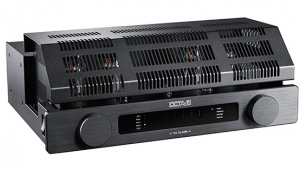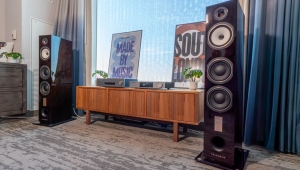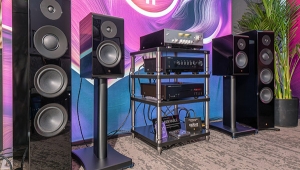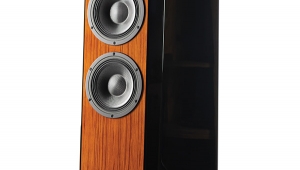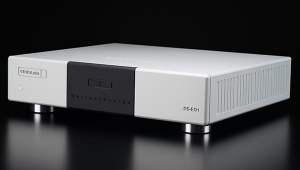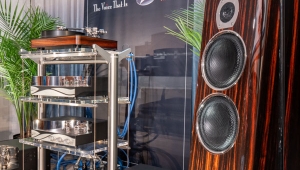| Columns Retired Columns & Blogs |
Microsoft HD Audio
As we discovered earlier this year, Microsoft is trying to make friends with audiophiles. Need more proof? The software behemoth recently announced broad support for what it has termed the "Universal Audio Architecture" (UAA) initiative, which, the company claims, "will help to ensure an improved audio experience and improved audio device driver support for users of Windows."
At the same time, Microsoft also announced the availability of the first version of its "High Definition Audio Class Driver," based on the High Definition Audio specification developed by Intel (see previous). Through the UAA initiative, Microsoft says it is also delivering a set of Windows audio class drivers based on other interface technologies, including USB Audio and 1394 Audio.
According to Microsoft, UAA is intended to provide an "it just works" consumer experience and to improve the quality of audio on Windows-based PCs. Announced first at WinHEC 2002, the UAA is also expected to lower support costs, improve the functionality and quality of PC audio for current and future operating systems, and save time and resources for manufacturers.
The company says that the UAA HD Audio Class Driver 1.0 is now available as an out-of-band release for Windows 2000, Windows XP, and Windows Server 2003. For future operating system releases, Microsoft says it intends to ship the UAA class drivers as part of the operating system.
"As high-quality, reliable, and feature-rich audio becomes increasingly important to PC owners and manufacturers, an audio specification is needed that will reduce the complications of compatibility, improve functionality, and decrease high manufacturing costs," explains Microsoft's Amir Majidimehr. "Together with Intel and a growing list of industry partner companies, we're taking steps toward guaranteed device support, glitch-free audio, and the best sound quality available."
Microsoft points out that before the emergence of Intel's HD Audio specification, each audio vendor interested in the PC market had to create a separate driver to work with digital audio controllers, making development cumbersome and complicated. "The HD Audio specification provides a common audio host controller interface that allows the Microsoft UAA HD Audio Class Driver to provide audio support and extend the capabilities of PC audio for all users of Windows," says the company.
- Log in or register to post comments
















